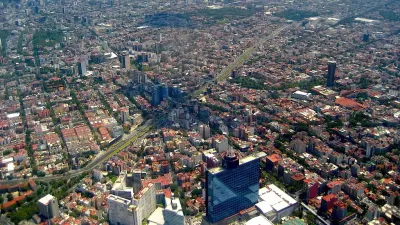Luis Alberto Moreno explores how Facebook and Twitter are improving cities in the developing world, as the governments of many Latin American municipalities take advantage of the explosive growth of social media to engage with citizens.

Moreno surveys the growing use of social media by governments of Latin American cities large and small as the "[u]se of social media [grows] at a breathtaking pace across the region." For an example, he turns to the Twitter feed of the mayor of Mexico City. "At first glance, it looks like a strange mix of unedited rants by aggravated citizens and upbeat public relations by an ambitious mayor. But a sustained look shows that a surprising number of these virtual conversations follow a cycle - citizen complains, mayor listens, city solves the problem - that until recently would have seemed utopian for an overpopulated and underfinanced metropolis in the developing world."
"The governments of virtually all large Latin American cities now use social media to engage with citizens, and smaller cities are quickly following suit," says Moreno. "The Inter-American Development Bank recently found that social media is used by governments in 70 percent of the region´s 140 'emerging cities' (those having 100,000 to 2 million residents and above-average economic growth rates)."
Looking at the prospects for the continued use of such platforms in the future, Moreno believes that, "[a]t a minimum, these technologies will give new vitality to the ancient ideals of participation and accountability. At best, they might shorten the wait for new lights in a darkened park. In either event, the next mayor of Mexico City, like others across the developing world, will not really have the option of ignoring social media. That's where people are choosing to speak, and where they expect to be heard."
FULL STORY: How Facebook and Twitter Are Making Developing World Cities Better

Alabama: Trump Terminates Settlements for Black Communities Harmed By Raw Sewage
Trump deemed the landmark civil rights agreement “illegal DEI and environmental justice policy.”

Study: Maui’s Plan to Convert Vacation Rentals to Long-Term Housing Could Cause Nearly $1 Billion Economic Loss
The plan would reduce visitor accommodation by 25% resulting in 1,900 jobs lost.

Why Should We Subsidize Public Transportation?
Many public transit agencies face financial stress due to rising costs, declining fare revenue, and declining subsidies. Transit advocates must provide a strong business case for increasing public transit funding.

Wind Energy on the Rise Despite Federal Policy Reversal
The Trump administration is revoking federal support for renewable energy, but demand for new projects continues unabated.

Passengers Flock to Caltrain After Electrification
The new electric trains are running faster and more reliably, leading to strong ridership growth on the Bay Area rail system.

Texas Churches Rally Behind ‘Yes in God’s Back Yard’ Legislation
Religious leaders want the state to reduce zoning regulations to streamline leasing church-owned land to housing developers.
Urban Design for Planners 1: Software Tools
This six-course series explores essential urban design concepts using open source software and equips planners with the tools they need to participate fully in the urban design process.
Planning for Universal Design
Learn the tools for implementing Universal Design in planning regulations.
Caltrans
Smith Gee Studio
Institute for Housing and Urban Development Studies (IHS)
City of Grandview
Harvard GSD Executive Education
Toledo-Lucas County Plan Commissions
Salt Lake City
NYU Wagner Graduate School of Public Service


























